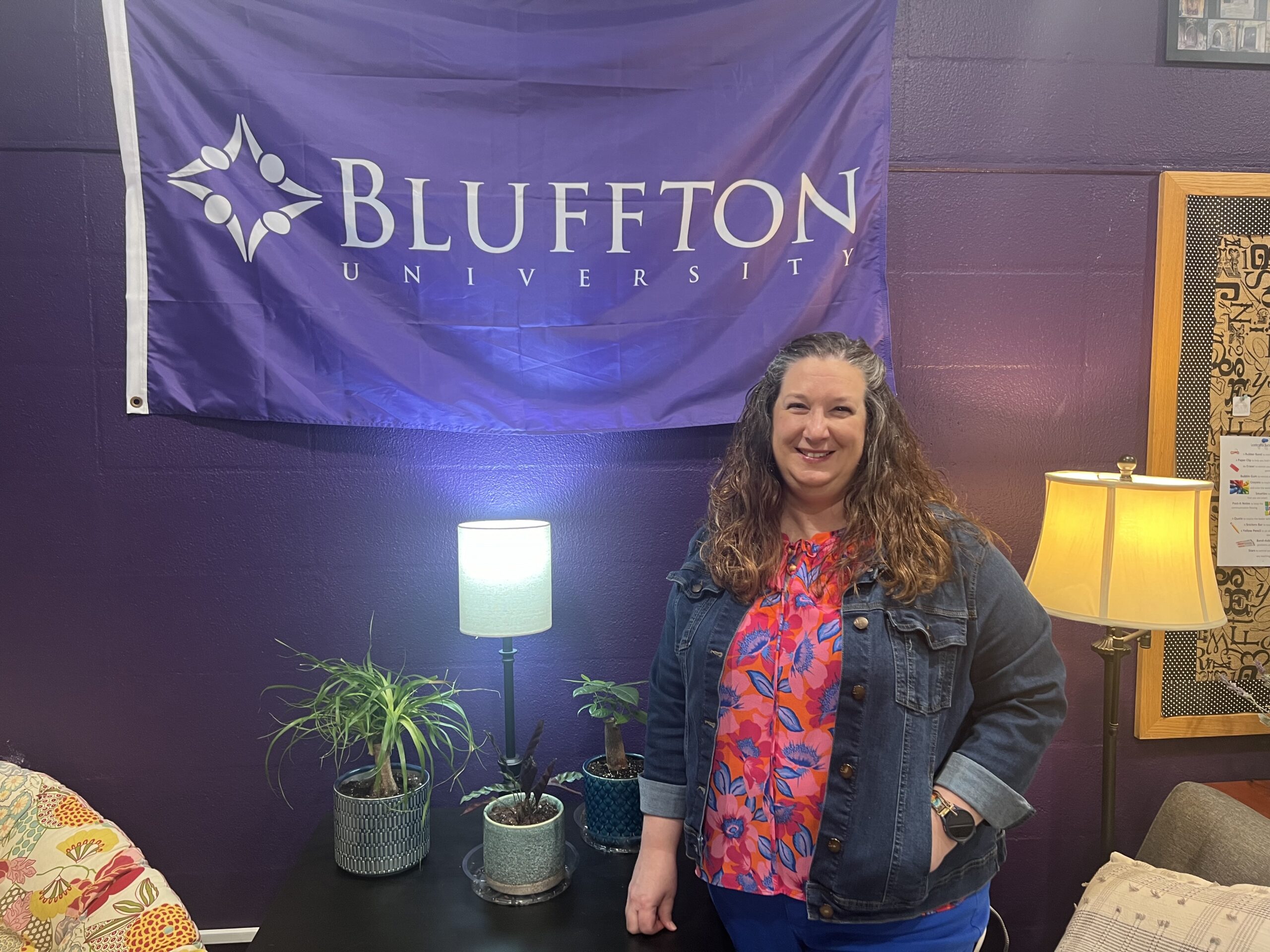Giorgia Belli is a 21-year-old who studies international economy at the University of Milan in Milan, Italy. A few years ago she traveled to the United States as an exchange student and was hosted by Brooke Kleman, a current sophomore at Bluffton University. Kleman has kept in touch with Belli and was able to let me contact her and get a personal view on the coronavirus shutdown situation in Italy and how it has affected her.
Here Belli gives an account of what it is like as a college student in Italy during the COVID-19 pandemic.

Photo of Giorgia Belli and her family. Left to right: her brother Francesco Belli, Giorgia Belli, her father Andrea Belli and her mother Simona Belli. Photo courtesy of Giorgia Belli.
Belli’s hometown is Vitorchiano, Italy. When she is not at school she lives there with her father Andrea Belli, mother Simona Belli, and younger brother Francesco Belli.
She said that the first few cases of the coronavirus began in Milan, Italy, where she attended school.
“The first case was found, and the next day we were told by the university that we were going to be closing although there was not much precaution taken before the first case was found,” Belli said.
She explained how there was not much done to prevent the spread of the virus until there was an actual confirmed case. Within less than two weeks, Italy had turned into a shutdown mode, only allowing people with essential jobs to keep going to work while others have to stay home.
“It happened very quickly and with all of the students going home from Milan and the colleges nearby the first cases, it could have been what made the spread happen so quickly,” said Belli.
She said Italy has seemed to have enough tests.
“At the beginning, it seemed like anyone who had any type of symptom would ask to be tested for the virus and that led a lot of tests to be used but a lot of people who tested had been tested positive for the virus,” Belli said. “Now we are only allowed to be tested if we have multiple symptoms for the virus or know that we have been in contact with someone who has the virus.”
Belli said people are now getting fined if they leave their house without a good enough reason to either work or to the market.
“People can still go to the supermarket to get groceries, but it can only be to the supermarket closest to where you live,” said Belli. “It has gotten pretty crazy there lately though, there is a limit of 3 to 5 people who can go into the market at a time and there is also someone monitoring how many go in and how many come out.”
Belli said the people who are waiting to go into the market have to stand at least one meter apart in order to enforce the social distancing rule.
She says that with her parents going out daily to work and sometimes with her mother going to the market, it can get scary.
“My mom normally goes from the house to work and to the market then back home but my father travels more and meets with more people for work,” said Belli.
Although she is worried about her parents being in contact with someone who might have the virus when they are out, she is more worried about her grandparents.
During the weekdays her parents are off to work and she is left at home with her younger brother Francesco who is 17 years old, however, she said on the weekends when everyone is home it has been hard to get used to.
“We have been together inside for about ten days now and although we are family it can be hard,” said Belli.
Even though it may seem boring, the Belli family has created a daily routine with each other. They are normally a very active family, Belli described them as runners specifically but with the stay at home rule, they have made an at-home gym filled with music and online workouts each night to do together. Some other things they do as a family is putting together puzzles and cooking some homemade bread and pasta.






